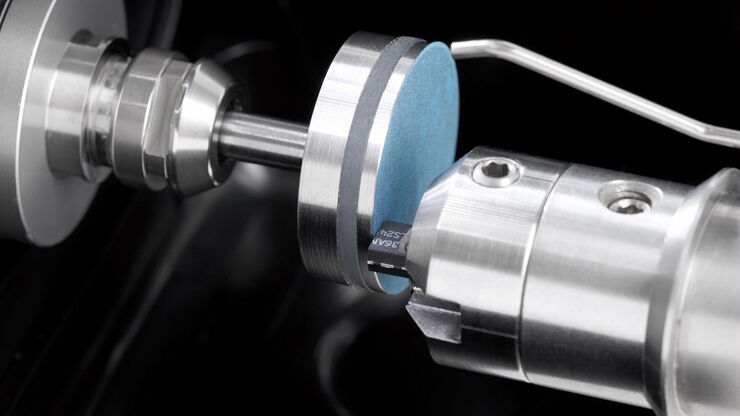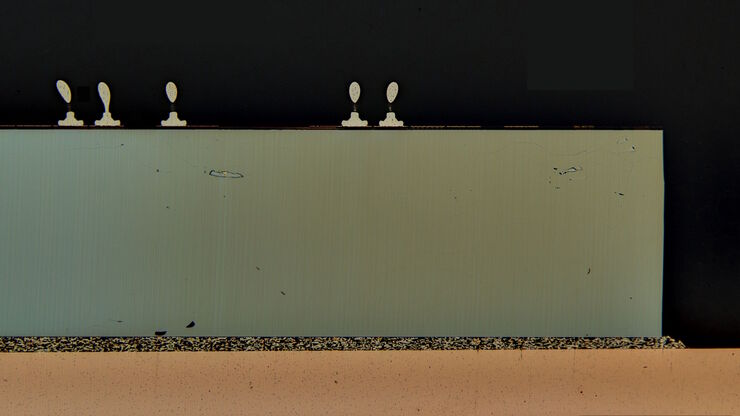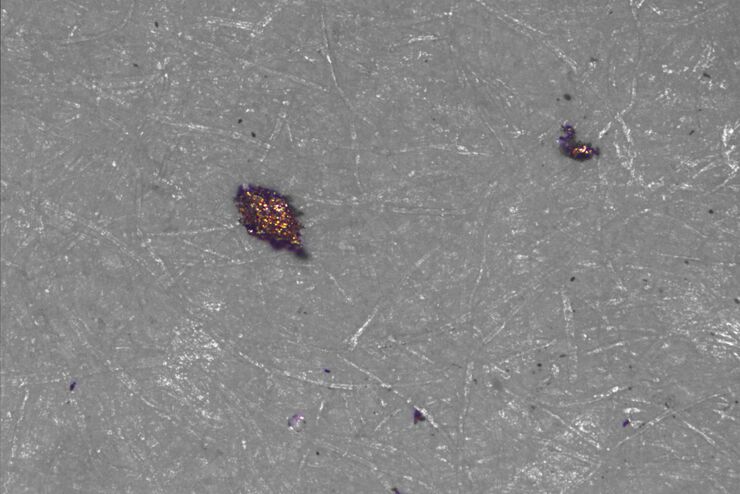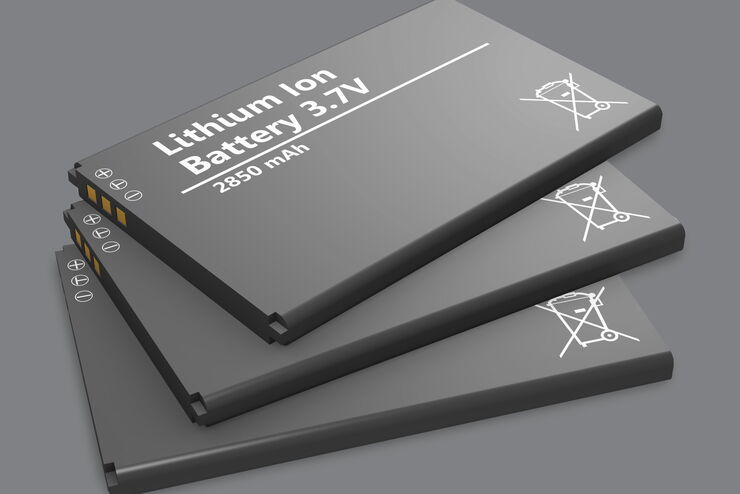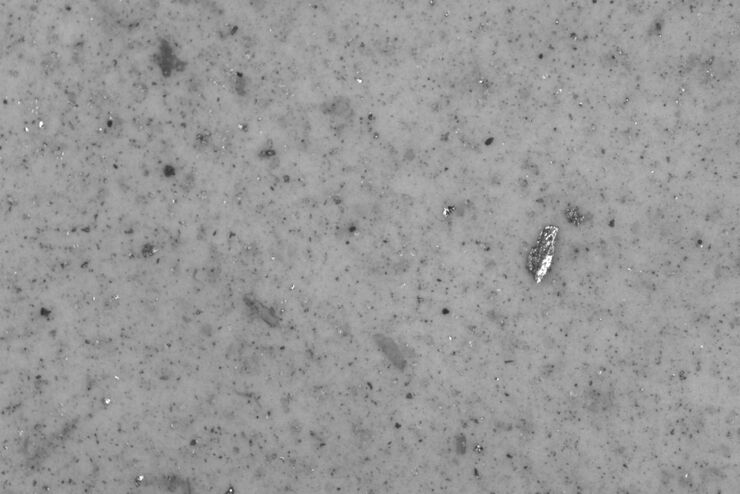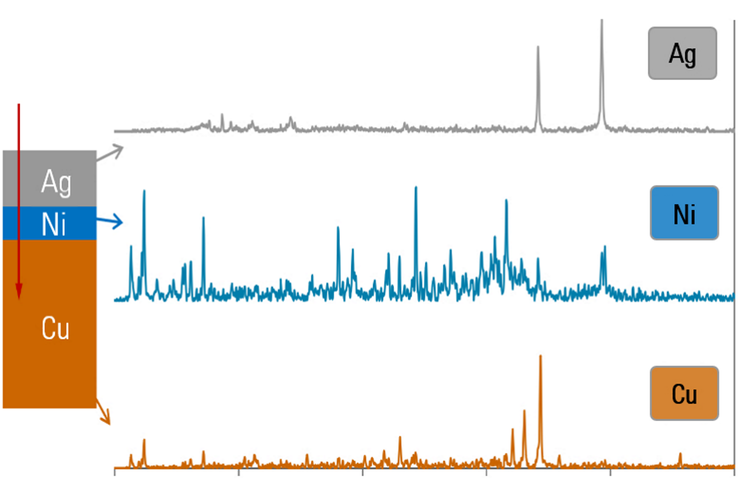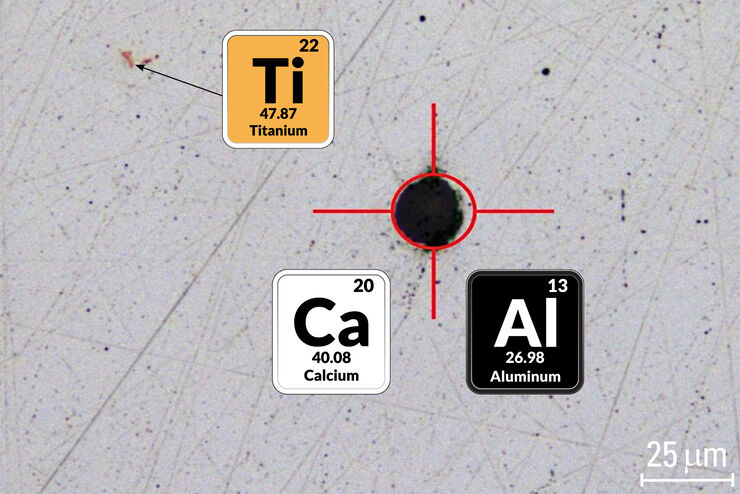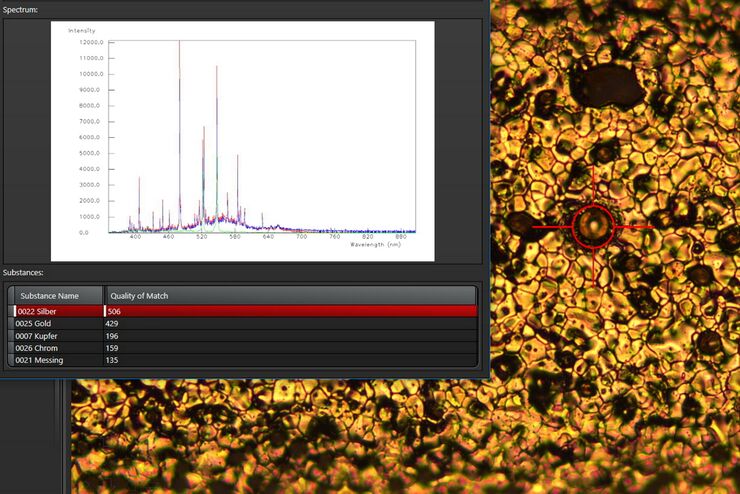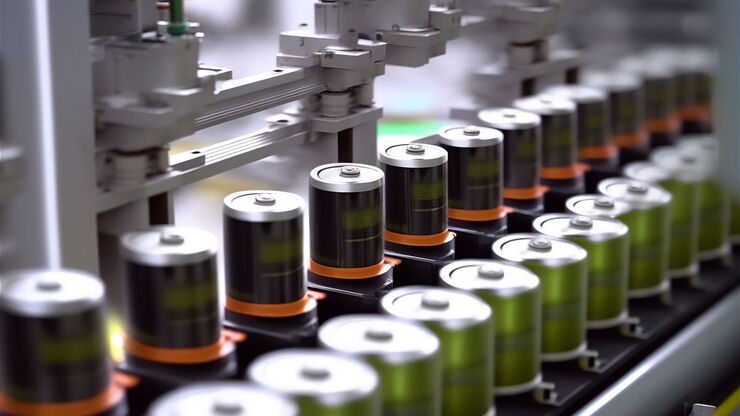DM6 M LIBS
Microscopes droits
Microscopie optique
Produits
Accueil
Leica Microsystems
DM6 M LIBS Solution d'analyse de la composition des microstructures
Un gain de temps de 90 % : inspection 2 en 1 visuelle et chimique de matériaux
Lire nos derniers articles
Battery Particle Detection During the Production Process
How battery particle detection and analysis is enhanced with optical microscopy and laser spectroscopy for rapid, reliable, and cost-effective QC during battery production is explained in this…
Cross-section Analysis for Electronics Manufacturing
This article describes cross-section analysis for electronics concerning quality control and failure analysis of printed circuit boards (PCBs) and assemblies (PCBAs), integrated circuits (ICs), etc.
Structural and Chemical Analysis of IC-Chip Cross Sections
This article shows how electronic IC-chip cross sections can be efficiently and reliably prepared and then analyzed, both visually and chemically at the microscale, with the EM TXP and DM6 M LIBS…
Factors to Consider for a Cleanliness Analysis Solution
Choosing the right cleanliness analysis solution is important for optimal quality control. This article discusses the important factors that should be taken into account to find the solution that best…
Efficient Particle Counting and Analysis
This report discusses particle counting and analysis using optical microscopy for cleanliness of parts and components. Particle counting and analysis is a critical part of quality assurance in the…
Quality Control Under the Microscope
Fast-rising demand for electric vehicles is one of the market’s main drivers, but there are other hotspots of growth, including the rise in renewable energy installations, such as photovoltaic panels,…
Cleanliness of Automotive Components and Parts
This article discusses the ISO 16232 standard and VDA 19 guidelines and briefly summarizes the particle analysis methods. They give important criteria for the cleanliness of automotive parts and…
Keeping Particulate Contamination Under Control in Pharmaceutical Products
This article describes how a 2-methods-in-1 solution combining optical microscopy and laser induced breakdown spectroscopy (LIBS) can be utilized for identification of particulate contaminants in the…
Depth Profiling and Layer Analysis for Inspection of Materials with a 2-In-1 Solution Combining Optical Microscopy and Laser Spectroscopy
In addition to simultaneous visual and chemical inspection, a 2-methods-in-1 materials analysis solution, which combines optical microscopy and laser induced breakdown spectroscopy (LIBS), can also be…
Visual and Chemical Analysis of Steel Microstructure: Faster Rating of Steel Quality
Simultaneous visual and chemical analysis of steel non-metallic inclusions with a 2-methods-in-1 solution, using optical microscopy and laser induced breakdown spectroscopy (LIBS), is described in…
See the Structure with Microscopy - Know the Composition with Laser Spectroscopy
The advantages of a 2-in-1 materials analysis solution combining optical microscopy and laser induced breakdown spectroscopy (LIBS) for simultaneous visual and chemical inspection are described in…
Fabrication de batteries
La fabrication de batteries comporte plusieurs défis clés en matière d’inspection. Des solutions pour la préparation des échantillons et l’analyse visuelle et chimique microscopique sont nécessaires.
Domaines d'application
Métallographie
Les microscopes métallographiques Leica sont optimisés pour l’analyse de la microstructure de métaux, d’alliages et d’autres matériaux.
Industrie automobile et transport
Améliorez la fiabilité et la précision de votre travail dans le secteur de la production automobile et des transports. Les solutions d'imagerie microscopique de Leica Microsystems améliorent votre…
Matériaux et sciences de la terre
Vous avez besoin d'outils appropriés pour une imagerie et une analyse fiables et de haute qualité. Leica Microsystems est la source unique pour tous vos besoins de recherche. En complément d'une…
Propreté Technique
Pour les fabricants de produits industriels et électroniques ainsi que les applications pharmaceutiques non réglementées, les solutions pour une propreté technique efficace offrent des avantages…
Microscopes pour analyse de matériaux
L’analyse de matériaux nécessite des solutions de microscope pour l’imagerie, la mesure et l’analyse de caractéristiques dans divers matériaux tels que les alliages métalliques, les semiconducteurs,…
Marchés de la microscopie industrielle
L'optimisation du temps de fonctionnement et la réalisation efficace des objectifs contribuent à votre résultat net. Les solutions de microscopie de Leica peuvent vous donner un aperçu des plus petits…
Industrie des métaux
Les solutions de microscope Leica dédiées à l’industrie des métaux servent à évaluer la qualité des métaux et à s’assurer de la conformité aux normes applicables.
Analyse transversale pour l’électronique
L’analyse transversale pour l’électronique permet une analyse détaillée des mécanismes de défaillance des composants tels que les cartes (PCB) et assemblages de cartes de circuits imprimés (PCBA) et…
Industrie électronique et des semi-conducteurs
Pour l’électronique et les semi-conducteurs, les solutions permettant une inspection efficace, une analyse de la section transversale et de la propreté, ainsi que la recherche et le développement de…
Fabrication de batteries
La fabrication de batteries comporte plusieurs défis clés en matière d’inspection. Des solutions pour la préparation des échantillons et l’analyse visuelle et chimique microscopique sont nécessaires.
Microscopes de mesure
Les microscopes de mesure sont utiles pour déterminer les dimensions des caractéristiques de l’échantillon lors du contrôle de qualité, de l’analyse des défaillances et de la recherche et du…

